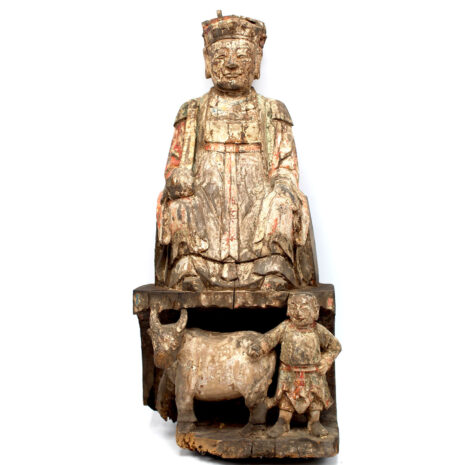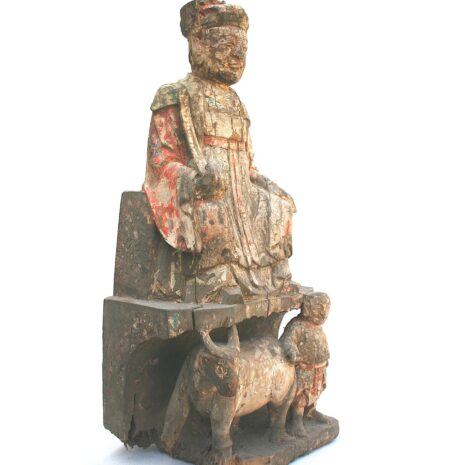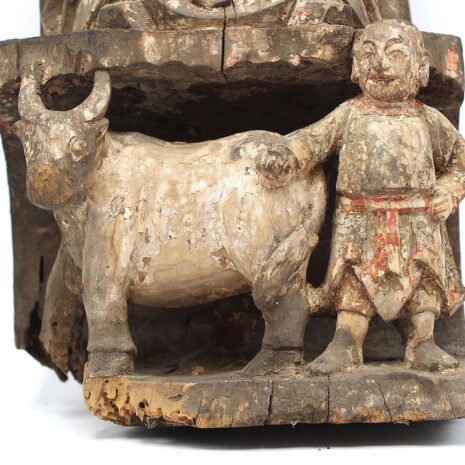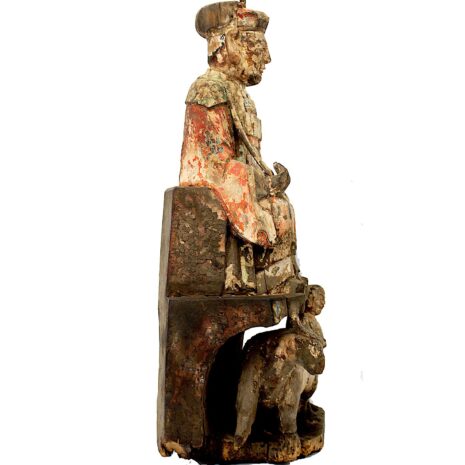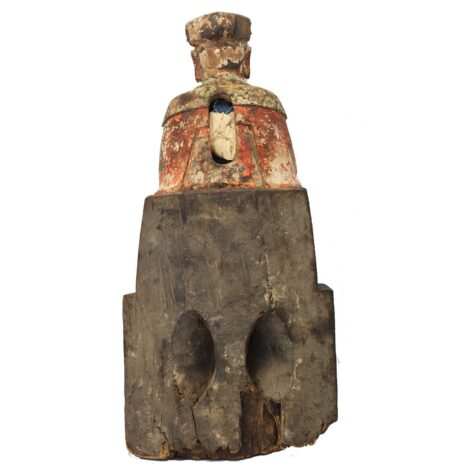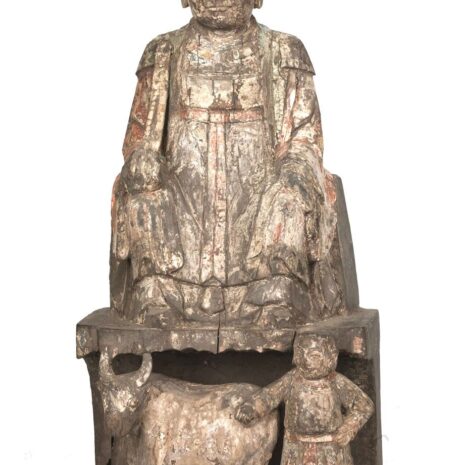Description
This extremely rare late Ming/early Qing dynasty antique-Chinese-wood-carving carving is divided in two parts and is significant for its juxtaposition of images as well as its unique iconography. The top is one of the Taoist officials in typical officials-attire: an official’s hat, a tiered robe with a red sash extending to the tops of the shoes seated ceremoniously on a backless chair, feet resting on a pedestal with the left hand on his knee and right hand holding a hu-tablet, the sign of an official. More important is the scene below with the “Spring Ox,” also called the Buffalo General, accompanied by one of the Earth-Gods and one of the agriculture Taoist-Deities , Mang Shen called the “Herd Boy.” In the traditional ancient ancestor-worship spring ceremony the “Beating of the Spring Ox” a life-size clay figure of the Herd Boy was brought to the fields to “wake up the earth” by supervising the symbolic beating of the life-size Spring Ox with sticks or willow branches to usher in spring with offerings of spring water and fresh grass placed before them. As one of the significant mythical animals, the deified Spring Ox and his Herd Boy are well recognized references that stem from beliefs in animism. In more recent times, the Spring Ox is honored to protect farmers and their beasts of burden from cattle pests and epidemic disease. Oxen, were essential to everyday life in farming villages, especially southern China, where farmers relied on them to pull plows, turn millstones to grind grains, and sources of food and hides. Images of the Herd boy with the ox resemble annual Farmers Almanac illustrations depicting the Herd Boy with his hair tied up in two buns as in this carving. The piece was consecrated and the bung covering the cavity is missing, revealing the consecration script inside. Although there is insect damage and a missing part of the base resulting from being stored for many years, the piece is in remarkably good condition considering its age and use (probably outdoors), with some of the original red (a propitious color) pigment remaining. This is an exceptional and rare folk-art statue and is part of the VA Deities-and-Legends Collection
Click here for the Blog Consecrating Wooden Images to Imbue Them with A Life Force
Sources
Jeremy Roberts, Chinese Mythology A to Z, New York, Facts on File, Inc., 2004
Keith Stevens, “Altar Images from Hunan and Kiangsu”, Journal of the Hong Kong Branch of the Royal Asiatic Society, Vol. 18, 1978.
Keith Stevens, Chinese Gods: The Unseen World of Spirits and Demons, London, Collins & Brown Limited, 1997.
Keith G. Stevens, Images of Asia: Chinese Mythological Gods, New York, Oxford University Press, 2001.
Additional information
| Weight | 8 lbs |
|---|---|
| Dimensions | 18 × 12 × 6 in |
| Place of Origin | China |
| Materials and Technique | Wood |
| Period | Antique, Qing Dynasty |
| Date | 17-18th Century |
| Dimensions (inches) | Ht: 14.25” W: 7.125” D: 4.875” |
| Dimensions (metric) | Ht: 36.195cm W: 18.0975cm D: 12.3825cm |
| Weight | 2lbs 8oz |
| Condition | Good condition, see description |
| Item Number | 16337LKE |
| Shipping Box Size |

